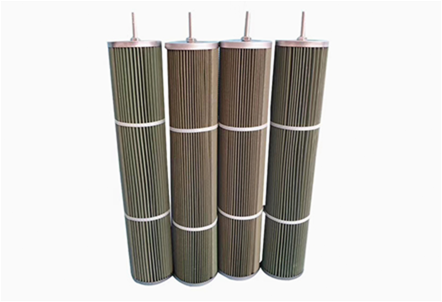 Tel:
+8618931101301
Tel:
+8618931101301
نوفمبر . 21, 2024 04:57 Back to list
air filter turbine
The Importance of Air Filters in Gas Turbines
Gas turbines are a critical component in power generation, aviation, and various industrial processes. They are known for their efficiency and ability to produce large amounts of power with relatively low emissions. However, the performance and longevity of these turbines heavily rely on one often overlooked component the air filter. In this article, we will discuss the role of air filters in gas turbines, the various types available, and their impact on overall turbine performance.
The Role of Air Filters
Air filters in gas turbines serve a primary purpose to protect the turbine from contamination by particulate matter, dust, and other pollutants present in the atmosphere. When air is drawn into the turbine, it carries with it a variety of impurities that can cause extensive damage to the turbine’s components. These contaminants can lead to erosion, fouling, and corrosion, ultimately resulting in decreased efficiency, increased maintenance costs, and reduced operational life. Effective air filtration is therefore essential for maintaining the health and performance of gas turbines.
Types of Air Filters
There are several types of air filters commonly used in gas turbines, each with its own benefits and limitations. The main types include
1. Panel Filters These are the most straightforward and commonly used filters in gas turbine applications. They consist of a flat filter medium housed in a frame and are designed to capture larger particles. While they are inexpensive and easy to replace, they may not effectively capture smaller particulates.
2. Bag Filters These filters have a larger surface area than panel filters, which allows them to handle greater dust loads before needing replacement. Bag filters are more effective at trapping smaller particles, making them suitable for environments with higher contamination levels.
air filter turbine

3. HEPA Filters High-Efficiency Particulate Air (HEPA) filters are designed to capture at least 99.97% of airborne particles that are 0.3 microns in size. These filters are ideal for critical applications where air quality is paramount. While they provide superior filtration, their efficiency often comes at the cost of higher pressure drop, which can impact the turbine's performance.
4. Pre-filters Often used in conjunction with main filters, pre-filters capture larger particles, extending the life of more expensive main filters. They are an essential part of a multi-stage filtration system, especially in dusty environments.
5. Electrostatic Filters These filters utilize static electricity to attract and capture particles, offering a high level of filtration with lower pressure loss. They are reusable and can be cleaned, making them an environmentally friendly choice.
Impact on Turbine Performance
The efficiency of air filters directly correlates with the performance of gas turbines. Clean and effectively operating filters allow for optimal airflow, which is essential for maintaining combustion efficiency. When filters become clogged or dirty, they can restrict airflow, resulting in a drop in performance. This can have a significant impact on fuel consumption, emissions, and the overall output of the turbine.
Moreover, neglecting regular maintenance and replacement of air filters can lead to more severe issues, such as mechanical damage and costly repairs. Turbine operators must therefore prioritize air filter management within their maintenance schedules, ensuring that filters are inspected, cleaned, or replaced as necessary.
Conclusion
In conclusion, air filters play a vital role in the operation and longevity of gas turbines. They are instrumental in protecting turbine components from harmful contaminants, which can affect performance and efficiency. By understanding the different types of filters available and their respective advantages, operators can make informed decisions that enhance the reliability and effectiveness of their gas turbine systems. Investing in quality air filtration solutions and regular maintenance not only safeguards the equipment but also contributes to improved performance and lower operational costs in the long run. As the demand for cleaner and more efficient energy sources continues to grow, the importance of effective air filters in gas turbines cannot be overstated.
-
Material selection considerations for dust removal filter elements under high temperature conditionsNewsJun.23,2025
-
Cold knowledge of air filters: Why are some designed to be pleated?NewsJun.16,2025
-
Factory direct supply! High-precision air filter element wholesale and customizationNewsJun.12,2025
-
A complete analysis of the practical value of activated carbon filtersNewsJun.10,2025
-
Why are high iodine coconut shell activated carbon filters more durable?NewsJun.06,2025
-
Gas Turbine FilterNewsJun.06,2025

 Email:
Email:





